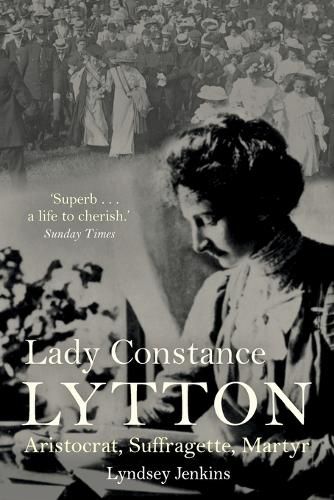Readings Newsletter
Become a Readings Member to make your shopping experience even easier.
Sign in or sign up for free!
You’re not far away from qualifying for FREE standard shipping within Australia
You’ve qualified for FREE standard shipping within Australia
The cart is loading…






This title is printed to order. This book may have been self-published. If so, we cannot guarantee the quality of the content. In the main most books will have gone through the editing process however some may not. We therefore suggest that you be aware of this before ordering this book. If in doubt check either the author or publisher’s details as we are unable to accept any returns unless they are faulty. Please contact us if you have any questions.
‘Does full justice to the remarkable achievements of an unlikely martyr’ Mail on Sunday
‘A fascinating study of a handful of the potential motivations behind violent political acts through the balanced examination of a remarkable woman’ All About History
Lady Constance Lytton (1869-1923) was the most unlikely of suffragettes. One of the elite, she was the daughter of a Viceroy of India and a lady in waiting to the Queen. She grew up in the family home of Knebworth and in embassies around the world. For forty years, she did nothing but devote herself to her family, denying herself the love of her life and possible careers as a musician or a reviewer. Then came a chance encounter with a suffragette. Constance was intrigued; witnessing Emmeline and Christabel Pankhurst on trial convinced her of the urgent necessity of votes for women and she went to prison for the cause as gleefully as any child going on a school trip.
But, once jailed, Constance soon found that her name and her connections singled her out for unwelcome special treatment. By now, 1909, the suffragettes were hunger striking and the government had retaliated with force-feeding. The stories that began to leak out of bungled operations, of dirty tubes, of screams halfheard through brick walls, of straitjackets and handcuffs outraged the suffragettes.
Constance decided on her most radical step yet: to go to prison in disguise. Taking the name Jane Warton, she cut her hair, put on glasses and ugly clothes and got herself arrested in Liverpool. Once in prison, she was force-fed eight times before her identity was discovered and she was released. Her case became a cause celebre, with debate raging in The Times and questions being asked in the House of Commons. Lady Constance Lytton became an inspiration and, in the end, a martyr. In this extraordinary new biography, Lyndsey Jenkins reveals for the first time the fascinating story of the woman who abandoned a life of privilege to fight for women s rights.
$9.00 standard shipping within Australia
FREE standard shipping within Australia for orders over $100.00
Express & International shipping calculated at checkout
This title is printed to order. This book may have been self-published. If so, we cannot guarantee the quality of the content. In the main most books will have gone through the editing process however some may not. We therefore suggest that you be aware of this before ordering this book. If in doubt check either the author or publisher’s details as we are unable to accept any returns unless they are faulty. Please contact us if you have any questions.
‘Does full justice to the remarkable achievements of an unlikely martyr’ Mail on Sunday
‘A fascinating study of a handful of the potential motivations behind violent political acts through the balanced examination of a remarkable woman’ All About History
Lady Constance Lytton (1869-1923) was the most unlikely of suffragettes. One of the elite, she was the daughter of a Viceroy of India and a lady in waiting to the Queen. She grew up in the family home of Knebworth and in embassies around the world. For forty years, she did nothing but devote herself to her family, denying herself the love of her life and possible careers as a musician or a reviewer. Then came a chance encounter with a suffragette. Constance was intrigued; witnessing Emmeline and Christabel Pankhurst on trial convinced her of the urgent necessity of votes for women and she went to prison for the cause as gleefully as any child going on a school trip.
But, once jailed, Constance soon found that her name and her connections singled her out for unwelcome special treatment. By now, 1909, the suffragettes were hunger striking and the government had retaliated with force-feeding. The stories that began to leak out of bungled operations, of dirty tubes, of screams halfheard through brick walls, of straitjackets and handcuffs outraged the suffragettes.
Constance decided on her most radical step yet: to go to prison in disguise. Taking the name Jane Warton, she cut her hair, put on glasses and ugly clothes and got herself arrested in Liverpool. Once in prison, she was force-fed eight times before her identity was discovered and she was released. Her case became a cause celebre, with debate raging in The Times and questions being asked in the House of Commons. Lady Constance Lytton became an inspiration and, in the end, a martyr. In this extraordinary new biography, Lyndsey Jenkins reveals for the first time the fascinating story of the woman who abandoned a life of privilege to fight for women s rights.